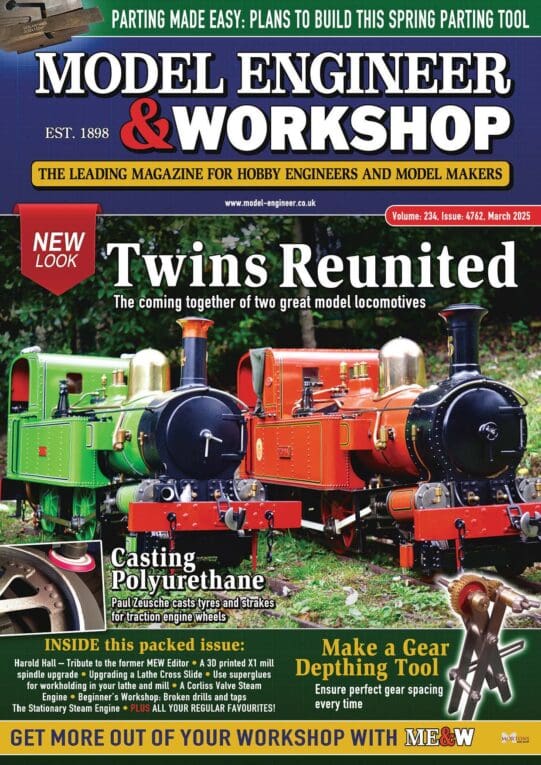I read the original question again. It questions apparent trademark infringement – but somehow strays into the minefield of Certificates of Conformity.
They are different matters, and obviously passing-off goods under false brand-names is dishonest and illegal.
While issuing a C of C may theoretically be feasible for a retailer buying from wholesalers whose main stocks need commercially be under formal QA control anyway, but "can" is not "must". Neither Mark (the OP) nor anyone else has suggested why an amateur engineer might demand a copy of a C of C for any material other than that for a welded steel boiler where required – as Nick Clarke queries.
Why have they not? Easy. There is no need.
===
I feel a moment of mischief coming on…..
'''
The Far Tottering & Oyster Creek Amalgamated Society of Model & Experimental Engineers is emerging from lock-down, and Charlie has brought his newly-finished 7.25" gauge Merchant Navy (full 'Spam Can' form) for its first boiler test. The Admirer of Boilers and Witness to Admiring of Boilers are overwhelmed by the evident craftsmanship and perfect detailing; and even more impressed by Charlie's build-log.
"Yes" , says Charlie, " That C of C's for the injectors' and ejectors' silicon-bronze. That one covers the motion sprockets and chains. I had to contract out welding the oil-bath, but this is its paperwork. The axles are EN24T – here's their ultrasound scan receipt. If you look closely you can just see the tempered-glass and CE markings on the cab windows…. "
"That's fantastic! " enthuses the AOB. " OVSB himself would be right proud to see it! But… no documents for the frame steel? "
"Oh, them? " Charlie replies. " Band-sawn and milled from factory off-cuts. Bought 'em from Far Tottering Metals Recycling. Probably EN3. Bit tough, maybe cold-reduced stuff. Bit rusty but they soon cleaned up."
Paul Kemp.





